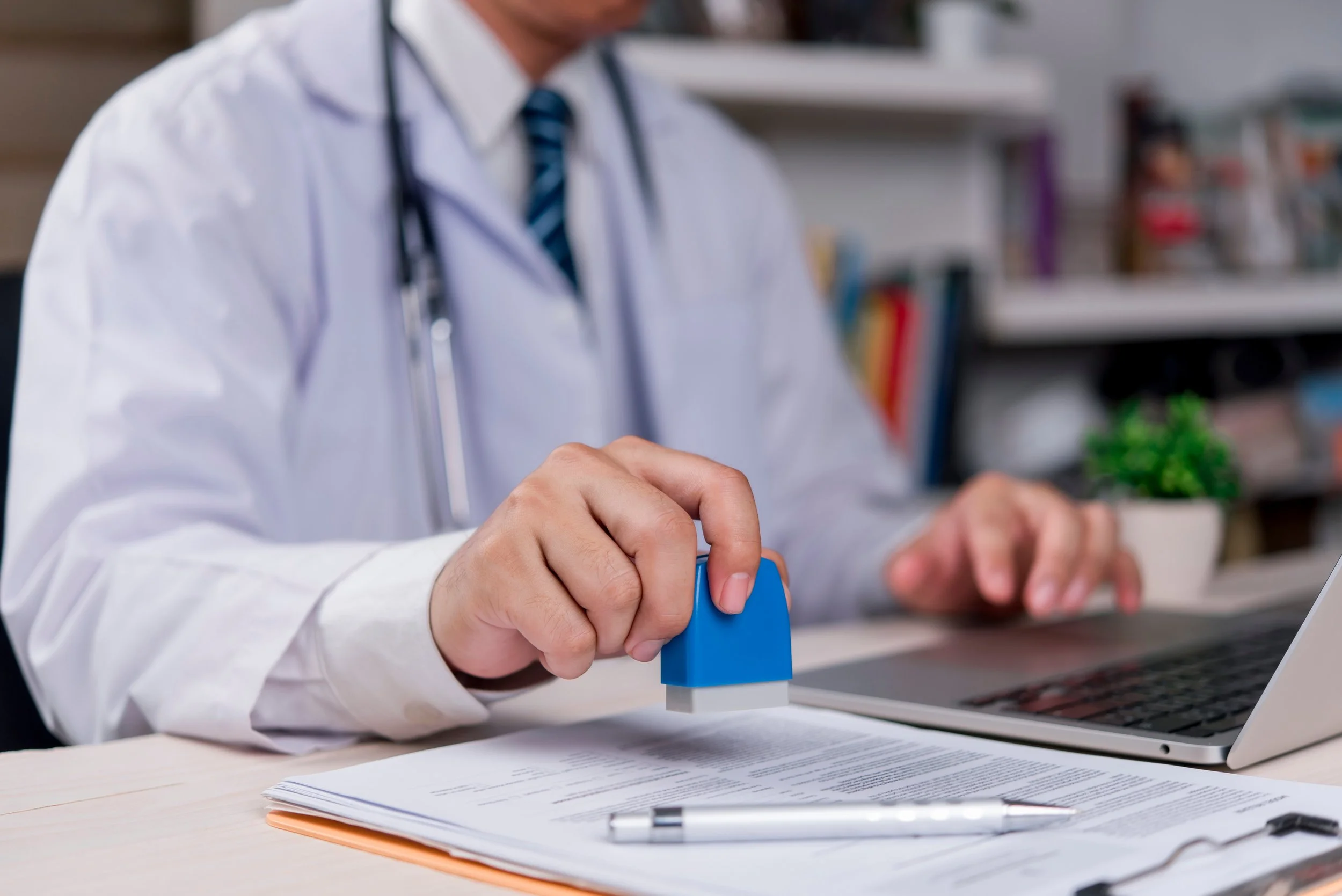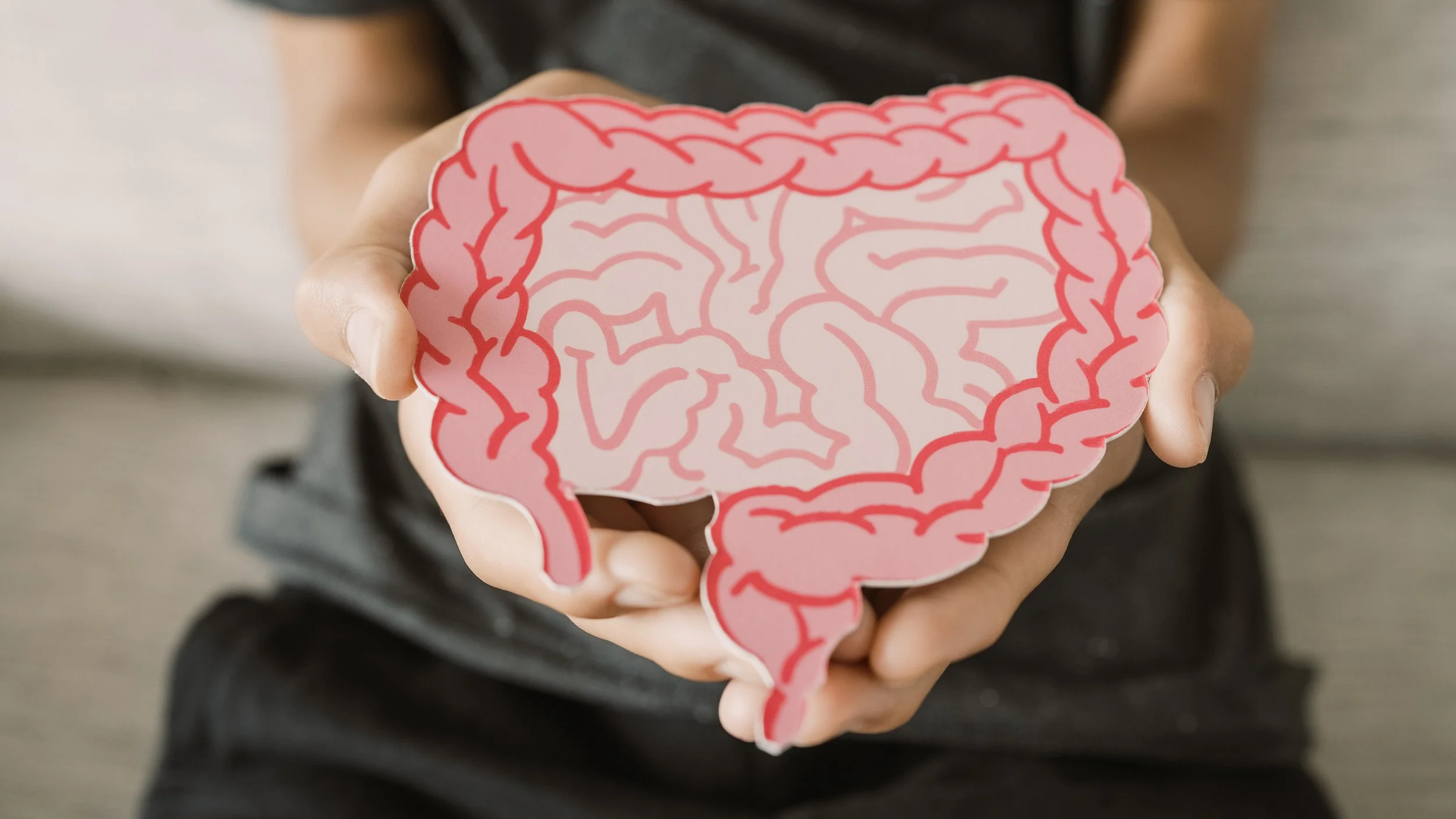What If Your Gut Could Speak Louder Than Your Resumé?
Image credits: CDC | Unsplash
What if, thanks to biotech, we’re entering an era where your gut might speak louder than your resume?
I often turn to science fiction not to predict the future, but to pressure-test our values. What could happen if we don’t ask hard questions about who gets to collect, own, and interpret our biological data? How might invisible choices made by companies or regulators ripple into our everyday lives?
Now it’s your turn to explore those questions. Check out the speculative short story below, co-written by top microbiome researcher Dr. KC Huang* and ChatGPT. It’s more than just a quirky glimpse into a biotech-infused future, it’s an invitation to reflect on how today’s decisions about data, biology, and AI might shape the world we all live in tomorrow.
The Case of Smith v. Gutcorp
Image credits: Khunkorn Studio | Adobe Stock
Nora Smith had expected rejection—just not this kind.
Thank you for applying to GutCorp. Unfortunately, your microbial profile does not meet our compatibility standards for the Wellness Workplace Initiative. We wish you the best in your future endeavors.
She reread the email. “Microbial profile?” she muttered. She hadn’t even realized the stool sample she'd mailed in for their “optional” wellness survey had anything to do with her application.
Turns out, it had everything to do with it.
GutCorp, the biotech darling that claimed to "optimize the human experience through microbial precision," had started screening all applicants for what they called “commensal compatibility.” High Bifidobacterium? Great. Rich short-chain fatty acid profile? Even better. But Nora’s gut? Too many Bilophila. Too much inter-individual “volatility.” Apparently, she was “microbially disruptive.”
“I’ve been rejected for being gassy,” she told her roommate, still stunned.
She sued. The case—Smith v. GutCorp—blew up overnight.
Image credits: Sewcream Studio | Adobe Stock
News outlets ran headlines like “Gut Feelings: Can You Be Too Bacterial to Work?” and “Microbiome Discrimination: The New Frontier of Bias?”
GutCorp’s lawyers argued that the policy wasn’t discriminatory. “We aren’t rejecting her as a person, but her potential to disrupt the microbial homeostasis of our workplace. Science shows certain gut profiles are associated with increased illness absence, mood instability, even suboptimal group cohesion.”
Nora’s legal team fired back: “That’s pseudoscientific eugenics with a probiotic label.”
During discovery, Nora’s team found something odd: emails between GutCorp’s HR and R&D teams suggesting that Nora’s microbiome wasn’t just incompatible—it was familiar.
Very familiar.
A geneticist testified: “We ran her profile against GutCorp’s proprietary database. It’s a 98% match with Sample #JX-7312. Our most resilient subject in a project called NeuroBiomeX.”
GutCorp, it turned out, had been using anonymized microbiome samples from old university studies to train AI models. Nora’s sample, collected during a college sleep study, had been sold, re-analyzed, and fed into algorithms. Her microbiome had built part of GutCorp’s predictive engine.
So when she applied for a job, their system flagged her—not as a stranger, but as the original microbial outlier their entire wellness scoring algorithm had been designed to exclude.
She wasn't just incompatible. She was the control.
The courtroom erupted.
Image credits: National Cancer Institute | Unsplash
In the final ruling, GutCorp was fined for discriminatory practices, violation of genomic privacy, and unauthorized data reuse. Nora was awarded damages and, ironically, a job offer … from a rival startup building an open-source “microbial justice” platform.
She declined.
Instead, she started her own lab. Focus: how companies use the body’s invisible signatures—gut, genes, breath, biome—not just to optimize, but to sort, exclude, and control.
Her lab’s motto: “You are what you eat. But more importantly, you are what they think you are.”
THE END
Looking Ahead
Image credits: National Cancer Institute | Unsplash
This short story is fiction (for now). But the tech building blocks for this story are already here: personalized wellness scores, genomic data brokering, and AI trained on the intimate signatures of our biology. As health technologies evolve, we need to ask not just what’s possible, but what’s acceptable—and for whom.
How do we ensure that innovations in health and wellness don’t reinforce existing inequities, or create new ones? When AI makes decisions based on your body’s data, who is accountable for the consequences? What rights should you have over biological data collected from your body—today, and decades into the future? And how do we balance the promise of preventing disease and personalizing care with the risk of surveillance, exclusion, or control?
These aren’t abstract questions. They’re invitations to participate in shaping the future. What do you think? Send me a message and let me know. I’d love to hear your take.
*Disclosure: KC is my husband. 😀 And boy does he love AI!
About Tiffany
Dr. Tiffany Vora speaks, writes, and advises on how to harness technology to build the best possible future(s). She is an expert in biotech, health, & innovation.
For a full list of topics and collaboration opportunities, visit Tiffany’s Work Together webpage.
Get bio-inspiration and future-focused insights straight to your inbox by subscribing to her newsletter, Be Voracious. And be sure to follow Tiffany on LinkedIn, Instagram, Youtube, and X for conversations on building a better future.
Buy Tiffany a Cup of Coffee | Image credits: Irene Kredenets via Unsplash.
Donate = Impact
If this article sparked curiosity, inspired reflection, or made you smile, consider buying Tiffany a cup of coffee!
Your support will:
Spread your positive impact around the world
Empower Tiffany to protect time for impact-focused projects
Support her travel for pro bono events with students & nonprofits
Purchase carbon offsets for her travel
Create a legacy of sustainability with like-minded changemakers!
Join Tiffany on her mission by contributing through her Buy Me a Coffee page.






